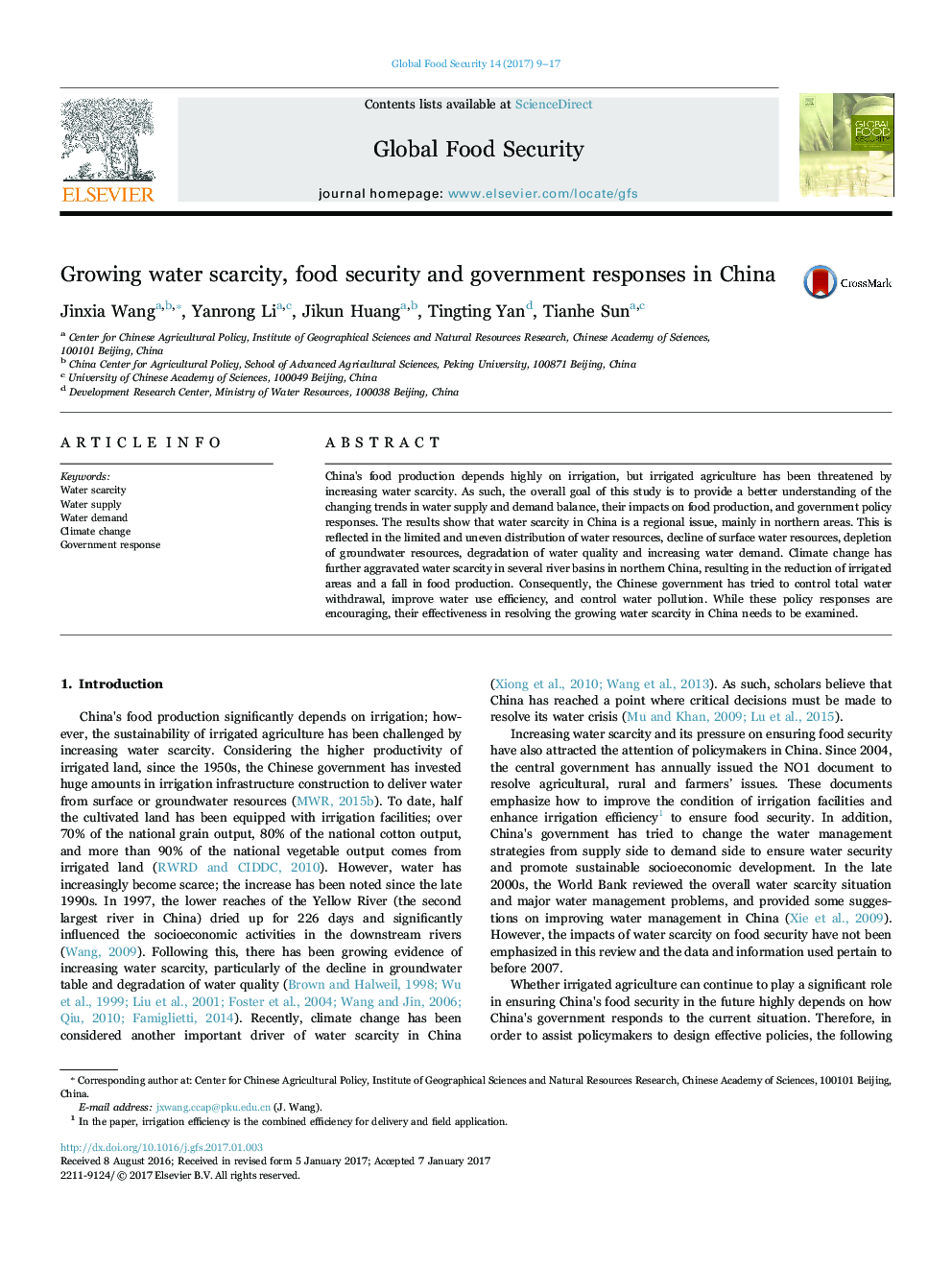| Article ID | Journal | Published Year | Pages | File Type |
|---|---|---|---|---|
| 5114506 | Global Food Security | 2017 | 9 Pages |
â¢China's food production highly depends on irrigation.â¢Decline of surface water resources, depletion of groundwater resources, and degradation of water quality.â¢Expansion of irrigated areas and increase of non-agricultural water withdrawal.â¢Climate change further aggravate water scarcity and negatively influence food production.â¢Government's response on controlling total water use, improve water use efficiency, and control water pollution.
China's food production depends highly on irrigation, but irrigated agriculture has been threatened by increasing water scarcity. As such, the overall goal of this study is to provide a better understanding of the changing trends in water supply and demand balance, their impacts on food production, and government policy responses. The results show that water scarcity in China is a regional issue, mainly in northern areas. This is reflected in the limited and uneven distribution of water resources, decline of surface water resources, depletion of groundwater resources, degradation of water quality and increasing water demand. Climate change has further aggravated water scarcity in several river basins in northern China, resulting in the reduction of irrigated areas and a fall in food production. Consequently, the Chinese government has tried to control total water withdrawal, improve water use efficiency, and control water pollution. While these policy responses are encouraging, their effectiveness in resolving the growing water scarcity in China needs to be examined.
